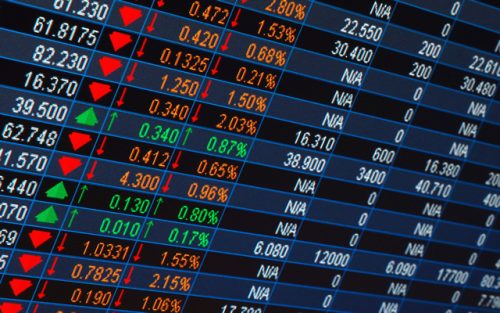Nigeria’s marketing industry, a vital sector reflecting the nation’s economic health, has witnessed a fluctuating trajectory in recent years, oscillating between periods of growth and decline. While the industry experienced a significant drop in foreign investment in 2024, recent data indicates a gradual resurgence, offering a glimmer of hope for sustained recovery and future growth. A total of $26.39 million in foreign investments has flowed into the sector since 2023, with $22.13 million recorded in 2023, a sharp decline to $1.29 million in 2024, and a modest recovery of $2.97 million in the first quarter of 2025. This fluctuating pattern underscores the sector’s vulnerability to external economic factors and highlights the need for sustained policy reforms and strategic initiatives to attract and retain foreign capital.
The recovery in 2025, albeit modest, signifies renewed investor confidence, driven by a combination of factors including government policy adjustments, the resilience of Nigerian brands, and the country’s burgeoning digital landscape. Government efforts to stabilize policies and the foreign exchange market have played a crucial role in reassuring investors. Furthermore, Nigerian brands, demonstrating remarkable adaptability, have intensified their consumer engagement strategies, leveraging the recovering economy to reconnect with their target audiences. The rapid growth of Nigeria’s digital ecosystem also presents a compelling opportunity for global players, further contributing to the renewed interest in the marketing sector.
The influx of foreign investment brings with it not only much-needed capital but also invaluable benefits such as global best practices, strategic partnerships, and technological innovation. These elements are crucial for strengthening the Nigerian marketing sector and fostering its long-term development. The 2024 slump, however, exposed the sector’s vulnerability to external shocks, leading to budget cuts, a slowdown in innovation, and diminished opportunities for young talent. This downturn served as a stark reminder of the importance of maintaining investor confidence and the need for proactive measures to mitigate risks and ensure sustainable growth.
Experts within the industry concur that the modest rebound in 2025 is a positive sign but emphasize the need for sustained efforts to achieve full recovery and capitalize on the growth potential. Addressing critical challenges such as policy unpredictability, regulatory bottlenecks, and the perception of Nigeria as a high-risk market is essential to attracting further foreign investment. By implementing proactive measures, the marketing sector can not only survive cyclical downturns but also become a driving force for economic growth in Nigeria.
Industry leaders advocate for a multi-pronged approach to sustain the recovery and solidify Nigeria’s position as a marketing innovation hub in Africa. This strategy involves embracing technological advancements, fostering stronger governance within agencies, expanding operations regionally, and advocating for regulatory stability. Adopting international best practices in governance, reporting, and compliance can enhance the attractiveness of Nigerian agencies to foreign investors. Furthermore, demonstrating leadership in emerging areas such as artificial intelligence, digital marketing, and sustainability-driven campaigns can position Nigerian agencies as forward-thinking and innovative players in the global market.
The Nigerian marketing sector stands at a critical juncture. The modest recovery in 2025 represents an opportunity to build a more resilient and dynamic industry. By addressing underlying challenges and proactively adapting to the evolving global landscape, Nigeria can unlock the full potential of its marketing sector and solidify its position as a leading force in African marketing and a driver of economic growth. Continued focus on innovation, strategic partnerships, and a supportive regulatory environment will be crucial for achieving this goal and ensuring long-term prosperity for the sector.


